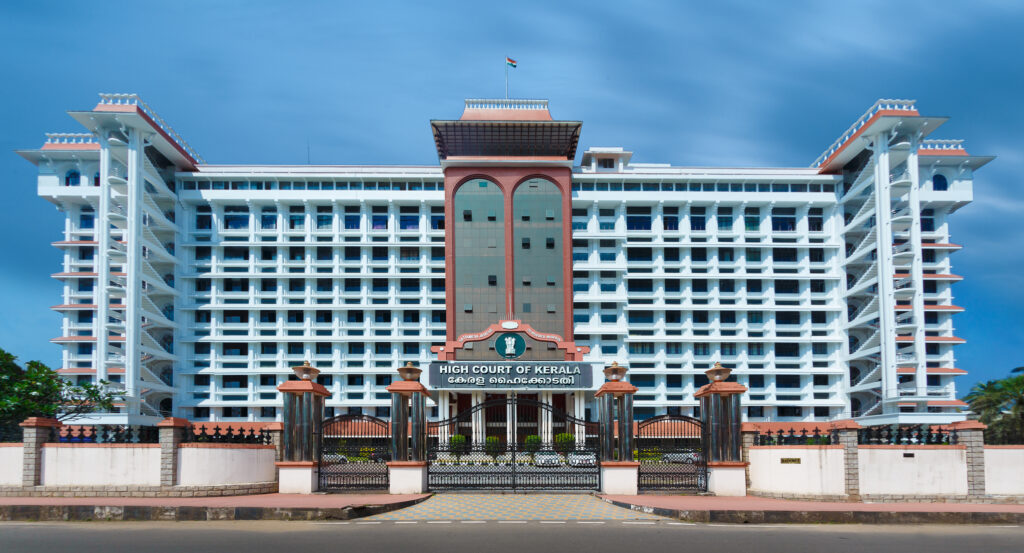The Kerala High Court stated that deciding to give seniority to feeder or lower categories is a policy choice. Only the competent authority can create rules, not the court.

The Kerala High Court stated that deciding seniority for a lower category is a policy matter, and only the appropriate authority can create rules about it, not the Court. This decision came from a case filed by Joint Block Development Officers against a ruling from the Kerala Administrative Tribunal. A Division Bench, including Justice A. Muhamed Mustaque and Justice P. Krishna Kumar, noted that determining seniority based on promotion dates or advice dates involves assessing various factors. They emphasized that if there are issues with the rules, it is up to the competent authority to fix them, not the Court.
The Petitioners, who served as Joint Block Development Officers, contested the final seniority list of Village Extension Officers (VEOs) released in 2014. They claimed the list was created without addressing their concerns about the provisional seniority list and did not correct the discrepancies in the Kerala General Subordinate Service Posts in the Rural Development Department (Amendment) Special Rules, 2008. They argued that many junior officers were ranked above them because the list was based on promotion dates rather than their actual service seniority from their initial appointment.
The Petitioners received advice from the PSC in 1991 as VEO (Trainee). After completing their training, they were appointed as VEOs Grade II in 1992. They were later promoted to Joint Block Development Officers in 2013 and 2014. During this time, the Government changed the Special Rules, integrating the positions of VEO and Lady VEO up to the level of Joint Block Development Officer. According to Rule 10(4) of the new Rules, the seniority list for VEO Grade II will be based on the date of advice. However, Rule 10(3) states that the seniority list for current VEO Grade I and Lady VEO Grade I will be based on the date of their promotion, with the title being VEO Grade I.
It was argued that this treatment in Rule 10(3) unfairly affected the existing VEO Grade I. The affected individuals pointed out the issue in this rule, leading the Secretary of the Local Self Government (ERB) Department to write to the Government, asking for changes to the Rules to restrict integration to newly recruited VEOs, but no action was taken. Additionally, it was claimed that by placing Lady VEOs above the Petitioners, who had joined the service earlier, the Government violated Articles 14 and 16 of the Constitution and the principles from Rule 35 of the Kerala State & Subordinate Service Rules. It was also noted that the Kerala Administrative Tribunal failed to address the legal issues raised by the Petitioners and made a decision without considering established legal principles.
The High Court, considering the details of the case, observed that combining different job categories and determining their seniority is a complex task that could lead to personal complaints. However, this alone does not invalidate the government’s policy or the relevant legal rule unless there is clear wrongdoing or unfairness. The Court stated that this case is similar. It mentioned that whether Rule 10(3) of the Special Rules creates an issue depends on various factors. The Court pointed out that if the petitioners’ argument is accepted, then the actual service time in the entry-level category would no longer matter for future promotions. It also explained that when two categories merge into one group, making distinctions based on service length in the entry-level position, instead of the feeder post, could be seen as unfair, depending on the situation. As a result, the High Court dismissed the Petition and chose not to challenge the Tribunal’s conclusions.
Cause Title: Unni K.E. v. & Anr. v. State of Kerala & Ors. (Neutral Citation: 2024:KER:85604)
Appearance:
Petitioners: Senior Advocate Ramakumar, Advocates C. Dinesh, T. Ramprasad Unni, S.M. Prasanth, R.S. Aswini Sankar, and T.H. Aravind.
Respondents: Sr. Govt. Pleader Nisha Bose and Advocate R. Rajesh.









